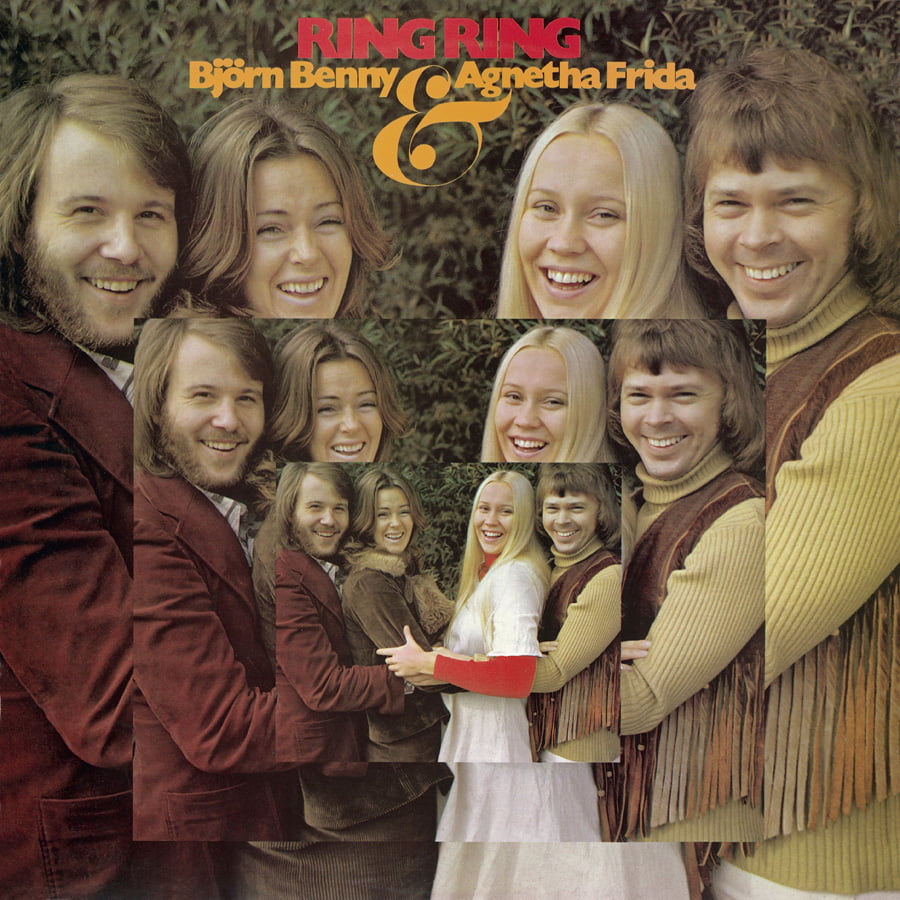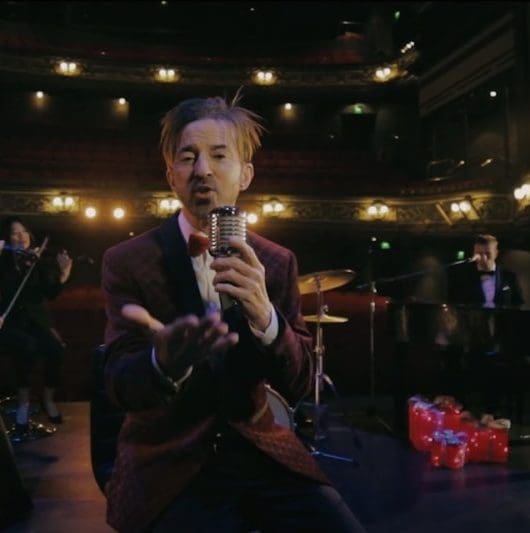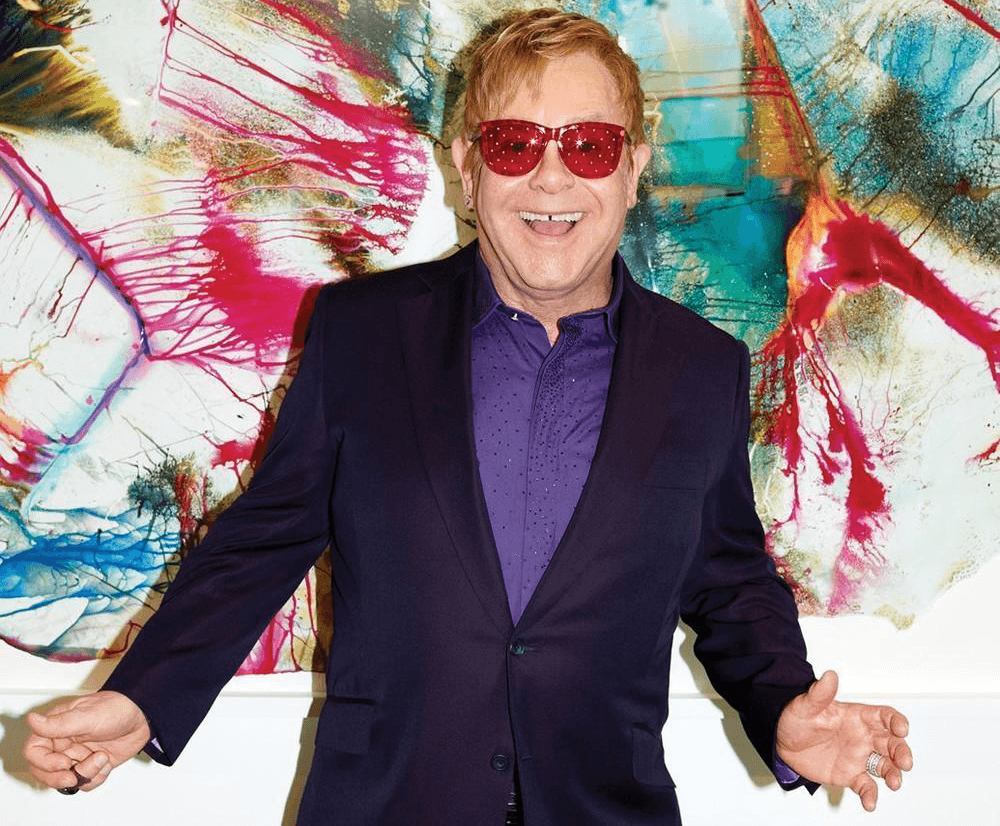Making ABBA: Ring Ring
By Classic Pop | September 10, 2021

ABBA: Ring Ring was the album that announced the arrival of a new pop group that were about to take on the world… By Wyndham Wallace
“Every day in the morning on her way to the office, you can see as she catches a train,” the ladies sing. “Just a face among a million faces, just another woman with no name.”
Anyone hearing this song upon its release would, in fact, have known the singers: their names were printed on the cover, in the kind of typeface beloved of the era, against a photo like one you’d post on Facebook after going through your parents’ cupboards.
But, nonetheless, with their centre partings and everyday grins, each might indeed be “not the girl you’d remember, but she’s still something special”, and even if you didn’t immediately recognise their extraordinary talent: “If you knew her I am sure you’d agree, ’cause I know she’s got a little secret.”
And that secret, the one that makes her so special? Well, that’s easy: “Friday evening she turns out to be… Nina, pretty ballerina.”
It’s a transformation that ABBA were yet to mirror, but the metaphor was nonetheless clairvoyant.
Originally credited to Björn Benny & Agnetha Frida, Ring Ring (from which those lyrics come), came about after songwriters Benny Andersson and Björn Ulvaeus – known imaginatively as Benny & Björn, and already successful within their homeland – invited their respective partners to record a one-off single on which they’d be given equal credit.
Though People Need Love, the resulting release wasn’t the most promising start to their career, it sounded like a distant cousin of the ABBA we’d come to love.
Beginning with a crunching guitar chord, that inauspicious seven-inch – which immediately leapt into a well-intentioned but banal chorus that observes how “People need hope, people need loving/People need trust from a fellow man” – was much like its cover, which showed them in the kind of bandstand pavilion in which they often played.
It was also like the line that soon followed: “Women always knew that it takes a man to get matrimonial harmony”. In other words, it was a slightly clumsy product of its time, reminding one uncomfortably of how The Wurzels would soon get to No. 1 parodying Melanie’s dreadful Brand New Key, and how Eurovision once represented the height of pop music’s ambitions. It did, however, boast a melody that burrowed its way into your skull.
It was actually Eurovision that provided added incentive for the quartet to continue after what turned out to be a Top 20 hit. Andersson and Ulvaeus were invited to pitch for Sweden’s 1973 entry, and Ring Ring – with lyrical input by Neil Sedaka and writing partner Phil Cody – was the outcome.
It still stands as one of ABBA’s masterstrokes, from its effervescent opening, which carves a circle in the air appropriate to the title, to its exuberant, unforgettable chorus.
Read more: Making ABBA’s Super Trouper
Read more: Making ABBA’s The Visitors
Best of all are its production, a low-budget but rewarding attempt to mimic Phil Spector’s Wall Of Sound, and that short but memorable bridge – “And I sit all alone impatiently/Won’t you please understand the need in me?” – which hints at their impending, supernatural combination of exhilaration and despondency.
Sadly, most of Ring Ring – only released in the UK almost 20 years later – promises “something special”, but little more.
Another Town, Another Train is elegantly constructed, more so than its lyrics about a restless lover – “You and I had a groovy time/But I told you somewhere down the line/You would have to find me gone” – and its flutes add a certain soft-focus sophistication.
Disillusion – ABBA’s only studio recording to feature a writing credit for Agnetha Fältskog – is an insipid ballad, but its intriguing melodic twists suggest a fondness for the then-recently reunited Bee Gees, as does I Saw It In The Mirror.
Love Isn’t Easy (But It Sure Is Hard Enough), meanwhile, leans gently on country rock, but offers glimpses of their soon-to-be trademark, unexpectedly soaring melodic moments, and the admirably complex He Is Your Brother showcases inventive guitar licks.
Nevertheless, Me And Bobby And Bobby’s Brother and the bittersweet candyfloss of I Am Just A Girl sound exactly like the kind of songs Eurovision would rightly reject, while the 60s Carnaby Street flavourings of She’s My Kind Of Girl and the soft-rock posturing of Rock ’N’ Roll Band seem strangely out of place.
Fortunately, buried halfway into the album is another hint of the genius to come, our once anonymous office girl, Nina, Pretty Ballerina.
Saccharine – but irresistibly so – the song boasts all the qualities of its protagonist and looks into a future where, like her, the band, too, would be “the queen of the dancing floor”. Ring Ring was to remain a secret for a long time outside Sweden, but the same could not be said of ABBA, nor their debut’s few – but vital – future classics.
Read more: ABBA Albums – The Complete Guide
Read more: Top 40 ABBA songs
Check out ABBA’s official website here






